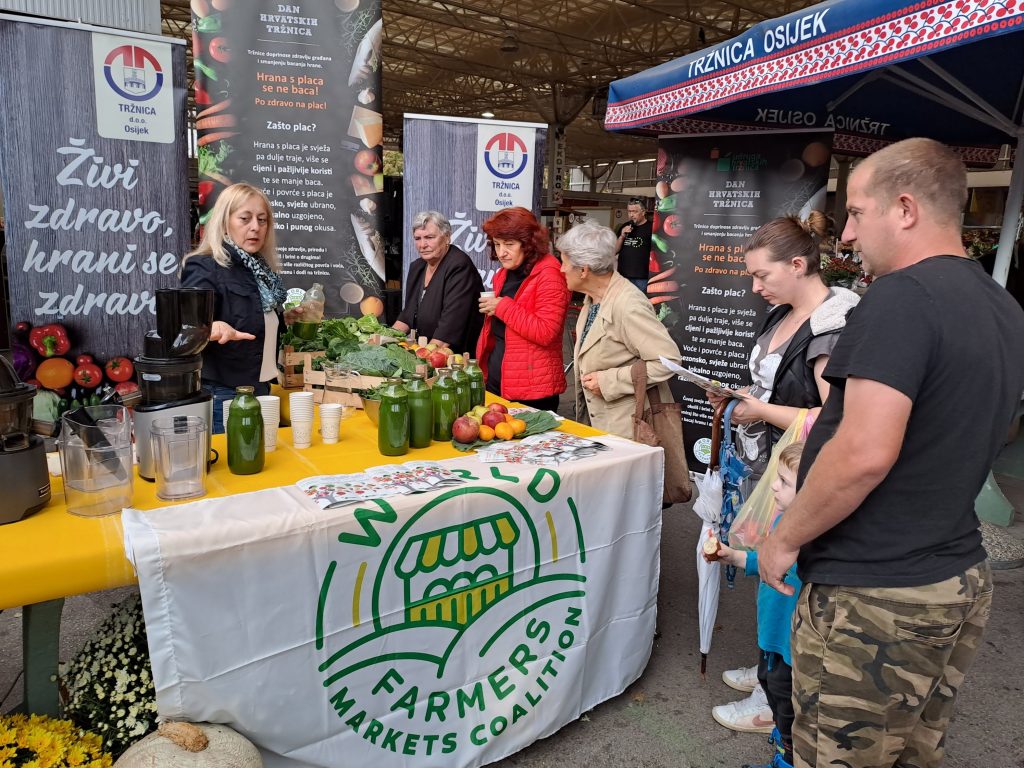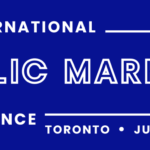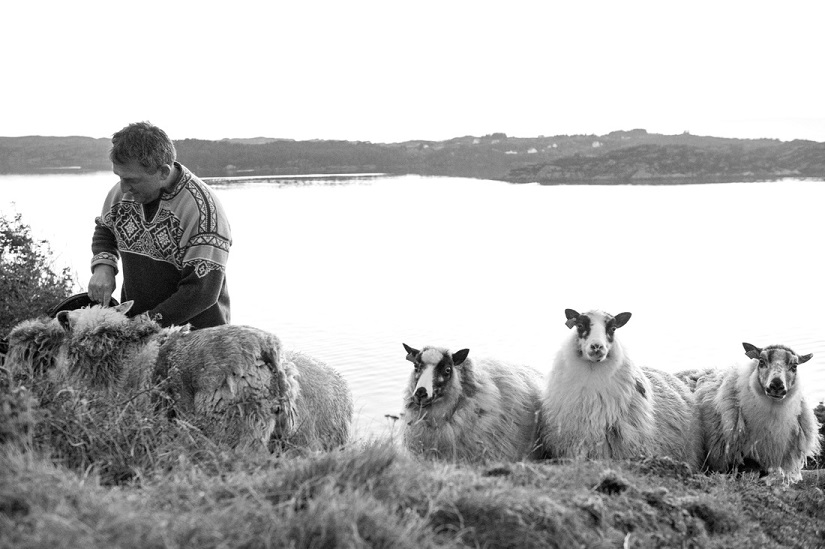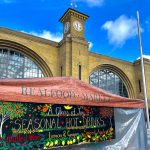World Farmers Markets Coalition turns two. Second General Assembly arrives.
Interview with Carmelo Troccoli, Director General of the WorldFMC by Nerina Di Nunzio
What has been done up to now, are you satisfied with the goals you set at the beginning?
Yes, I am very pleased with the work we have done together with the whole international coalition and I thank everyone very much. We have worked along two directions: the first is to expand the network of associations around the world for the constant evolution of farmers‘ markets; the second is to help to develop from zero the countries in which similar systems to farmers’ markets do not exist.
Today There are already 78 associations participating in the WorldFMC and they are in constant contact with each other. This means that what was initially just an idea of coalition is now a real community of exchange and good practice. It seems impossible, but in just two years we have already achieved a great achievement!
Although these associations carry out the same activity related to farmers’ markets, each of them does so with its own specific characteristics and knowledge. This makes the exchange very fruitful and enriching for each participant. The worldwide WorldFMC community shares ideas, good practices and training every day.
Regarding training, an online Academy has been set up to raise the profile of local food and its stakeholders in various capacities in the world. The WorldFMC Academy is led by Dr. J. Robin Moon, a professor at the City University of New York (CUNY) Graduate School of Public Health and our Head of Strategy, who creates and coordinates it from the USA. Our Academy is open to all members, and our monthly studios in particular is open to anyone in the world.
What is the goal of the WorldFMC ACADEMY training?
The aim of the Academy is to provide our community with the space to come together and collaborate, to gather and organise the growing body of knowledge, to translate for everyone (not just in language), to adapt and to create new things.
There are recorded on-demand courses (which can be watched again and again), interactive live streaming workshops, virtual and in-person workshops and affinity groups, with a wide library of resources shared by our members (Webinars, Studios and Co-Labs). Over two years, more than 600 people have participated in these courses and each month there is a new topic to investigate and explore.

A picture from Croatian Farmers Market
What is planned for the future?
We are developing a real local food leadership. Bringing people who until now have only worked on a practical level in building farmers’ markets, on national and international scenarios to participate in the debate on world food systems, means building a new vision of local food.
Today, local food is a leader and those who represent it become leaders. The board of the WorldFMC consists of 6 macro areas: the Americas, Europe, the Mediterranean, Africa, Asia and the South East, and its members gain leadership in this project by giving relevance to every corner of the earth, starting form farmers, their knowledge and that of local products.
Getting more specific about the results of these two years, how is the WorldFMC seen today?
Among the goals achieved in these two years, I would like to emphasise the fact that the WorldFMC now participates in international cooperation projects financed by the Italian Government, supported by FAO, supported by Ciheam Bari, and has relations with IFAD, the WORLD FOOD PROGRAMME and UN-Habitat, and this demonstrates the enormous value of this project in the field.
For example, we have undertaken the MAMI project ‘Mediterranean and African Markets initiative’, which concretely involves 5 countries simultaneously: Lebanon, Albania, Egypt, Kenya and Tunisia to give a strong response to the industrial market.
Thanks to the WorldFMC, a global interest in local food systems is growing, starting with farmers’ markets, and this allows us to lay the ground for the future work we want to do.
How important is the digitalization of the world in bringing forward the work of the coalition?
The WorldFMC was born and can increasingly develop thanks to digital tools, websites, platforms and social media. We, as a coalition, want to favor proprietary digital channels, but we obviously use the main platforms to disseminate and promote our activities. Many of the international activities with market and association leaders take place via streaming, via broadcast and live, there are also markets that sell online and via e-commerce, but it is clear that many more farmers still need access to technology, improving online communication is a big issue that we are monitoring.
How important is it to meet in person and how important is the second General Assembly that is happening in Rome this July?
Gathering together live is very important to know each other personally and it helps to strengthen ties. To create, in addition to collaboration, a valuable and sincere friendship based on the same values. The Second WorldFMC General Assembly is crucial to confirm our goals, to mark the progress of the work, to hold together and evolve this international community of local food leaders.
We are all different and all one. It is very nice to see that thanks to the WorldFMC our friends from different countries also meet each other by themselves or visit each other. Whoever lives of ‘farmers’ market’ really needs the physical encounter, it is the metaphor of being behind the counter that means welcoming people in the flesh, being able to smile at them and help them choose what to buy and maybe even which recipe to try with that ingredient. The farmers at the markets, as the market comes to life, create among them a large family and they move in a shared space that has its own dynamics and energy.
For us, the Assembly is a fundamental event that helps us to grow and to promote our activities making them known worldwide, for this reason this moment that will take place at the San Teodoro Market and will also be open to the public. The guests who will join us have a great relevance at the institutional level and the work planned among countries put at the center of the discussion sensitive issues such as the protection of biodiversity, the importance of innovation, the creation of national market systems and much more. On this occasion, endangered products, fruits and vegetables that you have never seen will also come from the world. It will be a memorable moment. We wait for you in Rome.

A picture from an English Farmers Market






